Get more data from your liquid biopsy
Redefining the potential of liquid biopsy
Liquid biopsy for profiling of cell free DNA (cfDNA) from blood and other sources holds huge promise to transform how we detect, identify, and manage human disease, most notably, cancer.
However, a standard blood draw yields an average of only 10 ng of cfDNA, of which circulating tumour DNA (ctDNA), is a small minority. This can be challenging when trying to get the most information possible from a liquid biopsy sample.
Further, genetic sequencing has been the primary application to obtain information from these samples. This method alone only provides information on actionable somatic mutations, and the detection of loci in ctDNA has remained challenging.
The addition of 5-methylcytosine (5mC) information can more easily identify profiles of cancer from non-cancer at many more loci. Additionally, 5-hydroxymethylcytosine (5hmC) profiles have been shown to be predictive of early-stage cancer. As a result, genome-wide measurement of genetic and epigenetic (5mC and 5hmC) variation at single base level could enable more sensitive liquid biopsy assays, however, this has remained technically challenging for cfDNA samples.
To overcome these challenges, we introduce duet multiomics solution, an innovative technology that sequences at single base resolution the complete genetic sequence integrated with modified cytosine from low nanogram amounts of cfDNA.
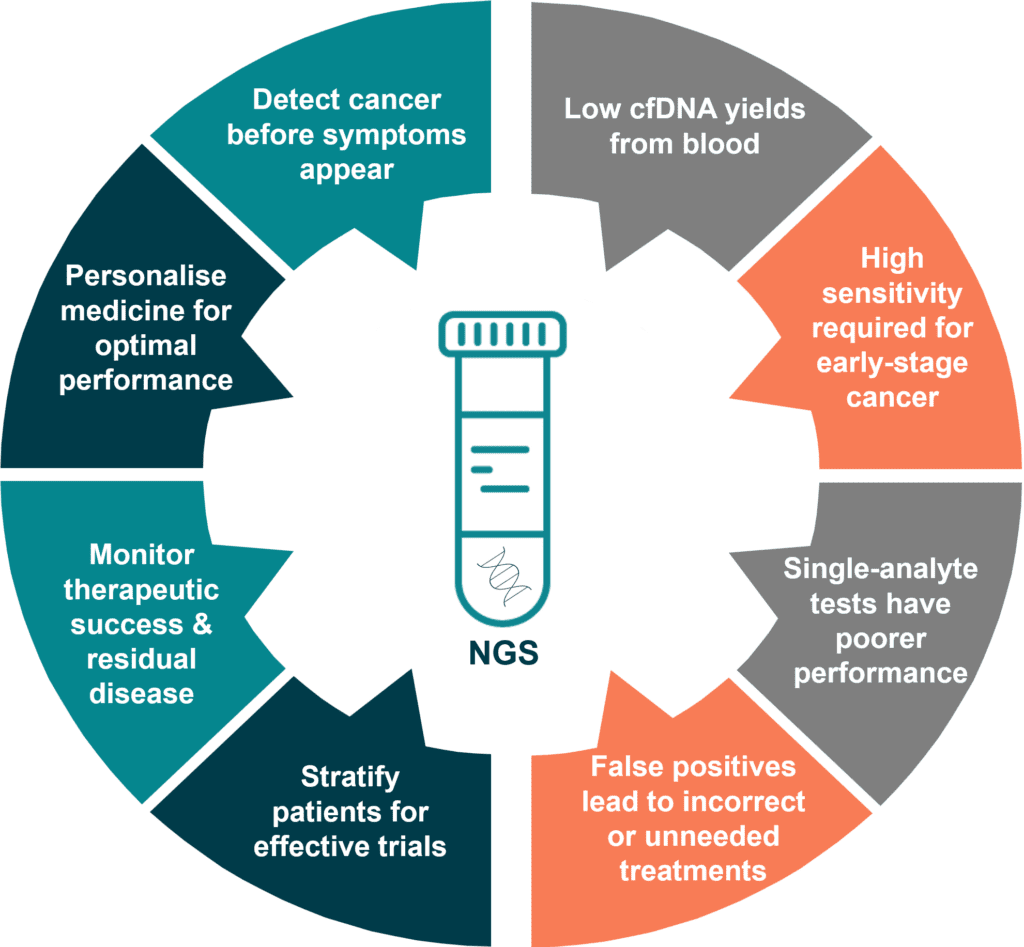
Performance data using the duet multiomics solution +modC on cfDNA and gDNA samples presented at AACR 2023
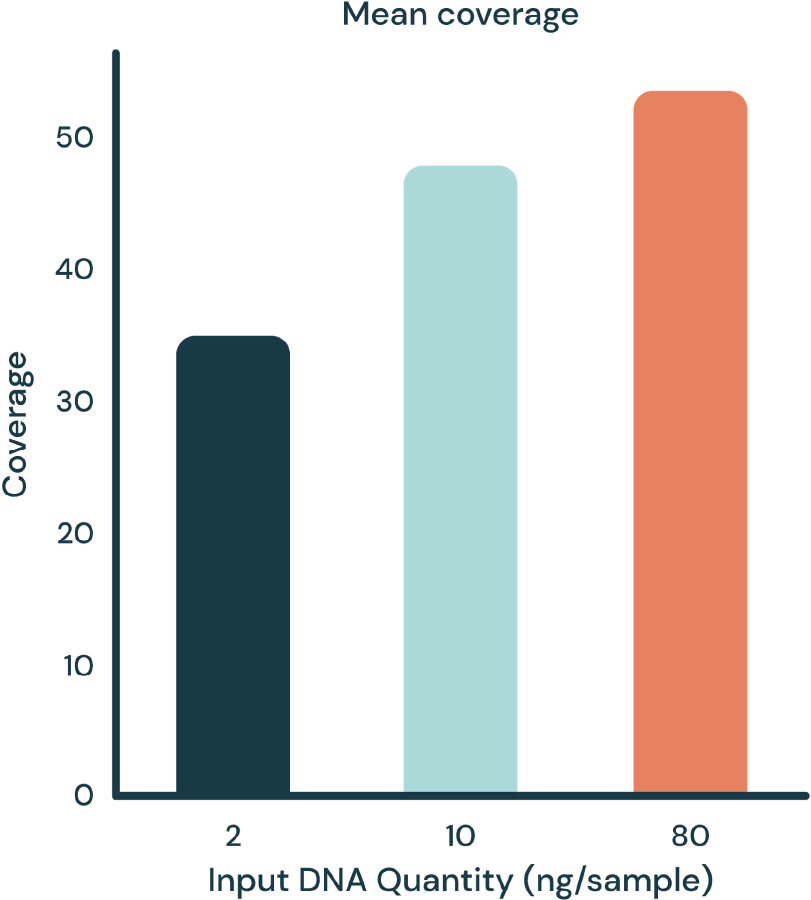
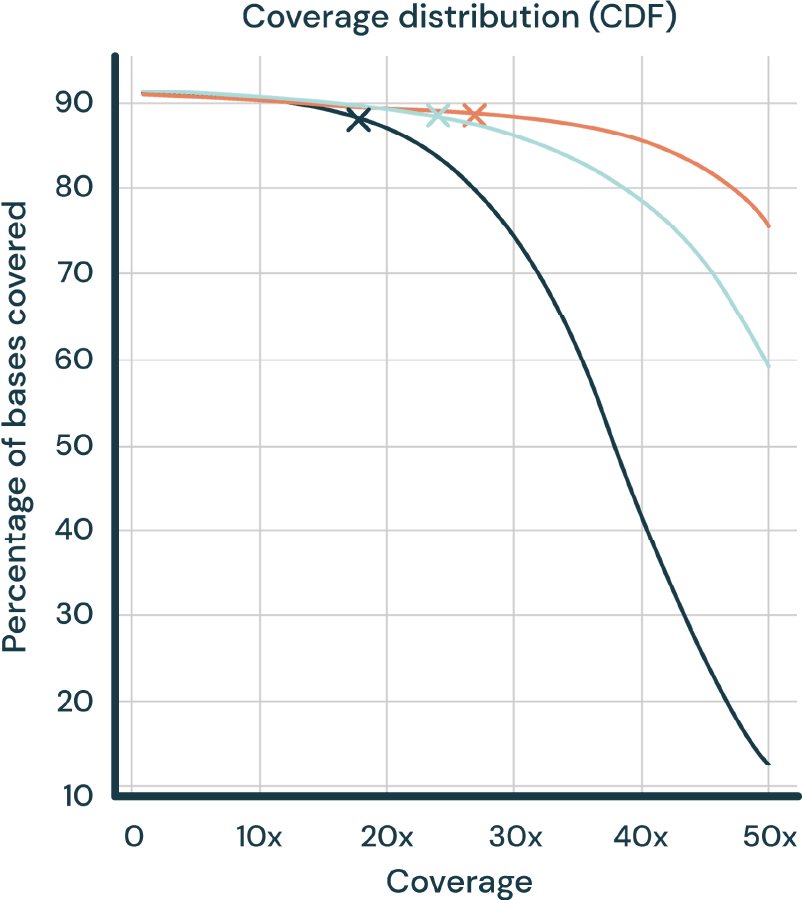
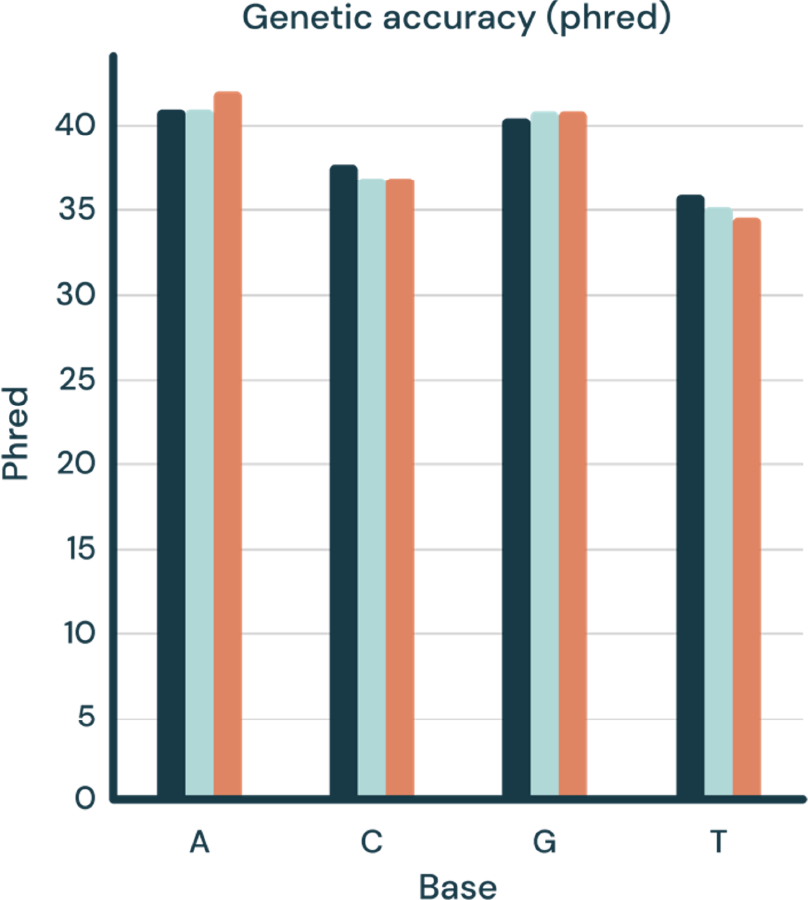
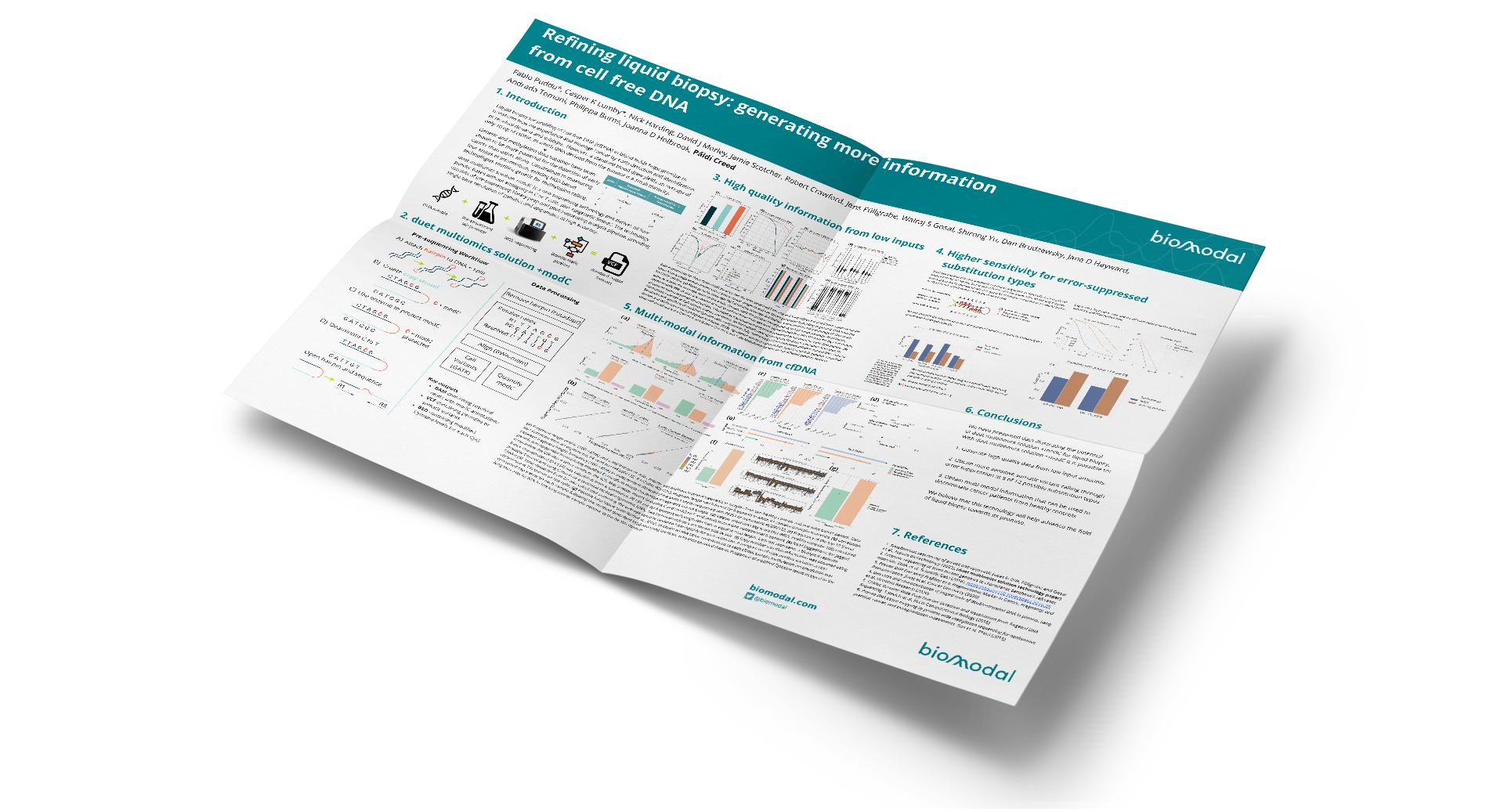
Refining liquid biopsy: generating more information from cell-free DNA
Learn how duet multiomics solution +modC is transforming research efforts in early cancer detection, risk stratification, and disease monitoring by using liquid biopsy for profiling of cfDNA. This poster illustrates how capturing complete genetic and epigenetic information in one workflow, from a single low-volume DNA sample is more powerful for early disease detection than either alone.
